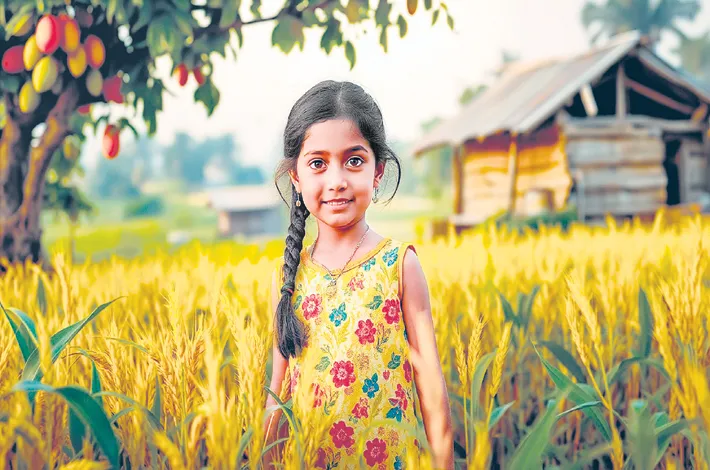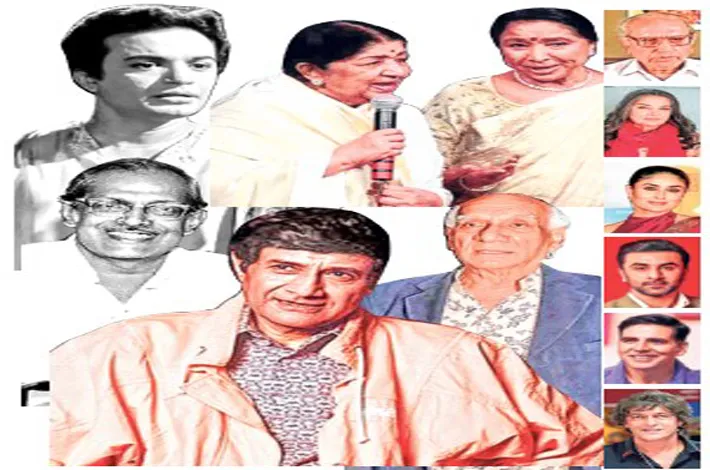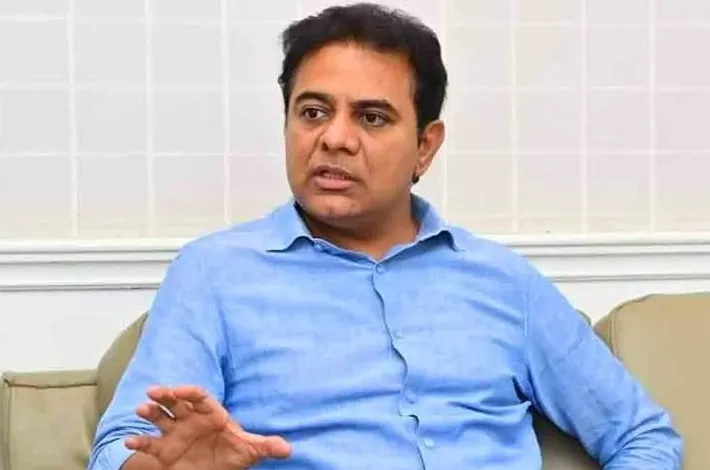The Mystery of the Missing Rupees
12-09-2025 12:00:00 AM

In the vibrant village of Sundarpur, nestled among the lush fields of Punjab, India, where golden wheat swayed and mango trees bloomed, lived a sharp-witted girl named Maya. At ten years old, with a braid that danced as she ran and eyes bright with curiosity, Maya loved her village. Farmers toiled under the sun, growing fragrant basmati rice, plump tomatoes, and sweet mangoes. But lately, the farmers’ smiles had faded, replaced by worried frowns. Maya was determined to find out why.
One sunny morning, Maya met her best friends—Rani, who could mimic a koel’s call perfectly, and Arjun, who knew every path through Sundarpur’s fields—at their secret hideout: a sprawling banyan tree near the village canal. “Have you seen how sad Farmer Amrita is?” Maya asked, tossing a pebble into the water. “She says Mr. Sharma, the trader, isn’t paying her enough for her mangoes.”
Rani nodded, her koel call softening. “My father said the same about his rice. Mr. Sharma’s prices are lower than last year, but the market in Ludhiana is paying more!”
Arjun scratched his head. “That’s strange. If the market’s paying more, why’s Mr. Sharma giving less? Let’s find out!”
The trio vowed to uncover the truth. Their first stop was Farmer Amrita’s orchard, where mangoes hung like jewels in the sunlight. Amrita was stacking baskets, her face heavy with worry. “Mr. Sharma paid me twenty rupees per kilo this year, down from thirty,” she sighed. “He says the market’s bad, but I heard traders in Amritsar are paying forty!”
Maya jotted this in her notebook. “Don’t worry, Farmer Amrita. We’ll get to the bottom of this.”
Next, they visited Farmer Baldev, whose tomatoes were known for their rich flavor. He echoed Amrita’s story: Mr. Sharma paid less than last year, blaming a weak market. But when Arjun asked a vegetable vendor in Sundarpur’s bazaar, she said, “Tomatoes and mangoes are selling fast! Prices are higher than ever!”
The clues were mounting, and Maya’s mind buzzed like a honeybee. “Mr. Sharma’s saying one thing, but the market’s saying another. I think he’s keeping extra rupees for himself!”
Rani gasped. “That’s cheating! But how do we prove it?”
Arjun grinned. “We need proof. Let’s spy on Mr. Sharma’s shop!”
That afternoon, the trio hid behind a pile of jute sacks near Mr. Sharma’s trading stall, a tin-roofed shop stacked with rice bags and vegetable crates. They peered through a crack in the wall as Mr. Sharma, a wiry man with a slick mustache, weighed Farmer Baldev’s tomatoes. Maya spotted something odd. “Look!” she whispered. “He’s nudging the scale with his foot. It’s showing less weight!”
Indeed, the scale dipped lower than it should, making the tomatoes seem lighter. Mr. Sharma scribbled in his ledger and handed Baldev a few rupees. “Sorry, Baldev,” he said with a fake sigh. “Tomatoes aren’t worth much this season.”
Farmer Baldev shuffled off, head bowed. Rani clenched her fists. “He’s stealing from them!”
“We need proof everyone will believe,” Maya said. “Let’s come back tomorrow with a plan.”
The next day, the friends returned with a secret weapon: Arjun’s new digital scale, a gift from his uncle. They waited until Mr. Sharma left for chai, then slipped into the stall. Maya weighed a basket of mangoes on Mr. Sharma’s scale, then on Arjun’s. The difference was stark—Mr. Sharma’s scale showed ten kilos, but Arjun’s showed twelve!
“He’s rigging the scale to cheat!” Rani said, her koel call sharp with anger.
Maya wanted more evidence. “Let’s check his ledger.” They found the dusty book on a shelf, filled with numbers and names. Maya’s eyes widened as she scanned it. “Look! He records the real weight here, but pays farmers for less. Then he sells the produce in Ludhiana for the full price!”
Arjun had an idea. “Let’s show the farmers. They’ll know what to do.”
That evening, Maya, Rani, and Arjun called a meeting at the village panchayat hall. Farmers filled the room, curious and weary. Maya stood on a bench, holding the ledger high. “Mr. Sharma’s been cheating you!” she declared. She explained the rigged scale and revealed the ledger’s secrets. Arjun demonstrated with his scale, weighing a sack of rice to show the difference.
Farmer Amrita’s eyes flashed. “I knew something was wrong! Let’s confront him!”
The next morning, the farmers marched to Mr. Sharma’s stall, Maya and her friends at the front. When Mr. Sharma saw the crowd, his mustache quivered. “What’s this about?” he blustered.
Maya stepped forward, holding the ledger. “You’ve been underpaying us by rigging your scale and lying about market prices. We have proof!”
The farmers shouted in agreement, waving their own records. Mr. Sharma’s face flushed, then paled. “I… I made a mistake,” he stammered. But the farmers weren’t fooled. They demanded he fix his scale and repay what he owed.
With the village watching, Mr. Sharma had no choice. He adjusted his scale and promised to pay fair prices. The farmers cheered, and Maya, Rani, and Arjun shared a triumphant fist bump. Over the next week, Mr. Sharma visited each farmer, rupees clinking in his bag, making things right.
That summer, Sundarpur sparkled brighter than ever. The farmers smiled again, their pockets fuller and spirits lifted. Maya, Rani, and Arjun were hailed as heroes, though Maya just grinned and said, “We just wanted to help.”
As they sat under the banyan tree, sharing a juicy mango, Rani mimicked a koel’s call. “Think we’ll solve another mystery soon?”
Arjun laughed. “With Maya around? For sure!”
And in Sundarpur, where honesty now weighed as much as gold, the friends knew they’d always stand up for what was right.








